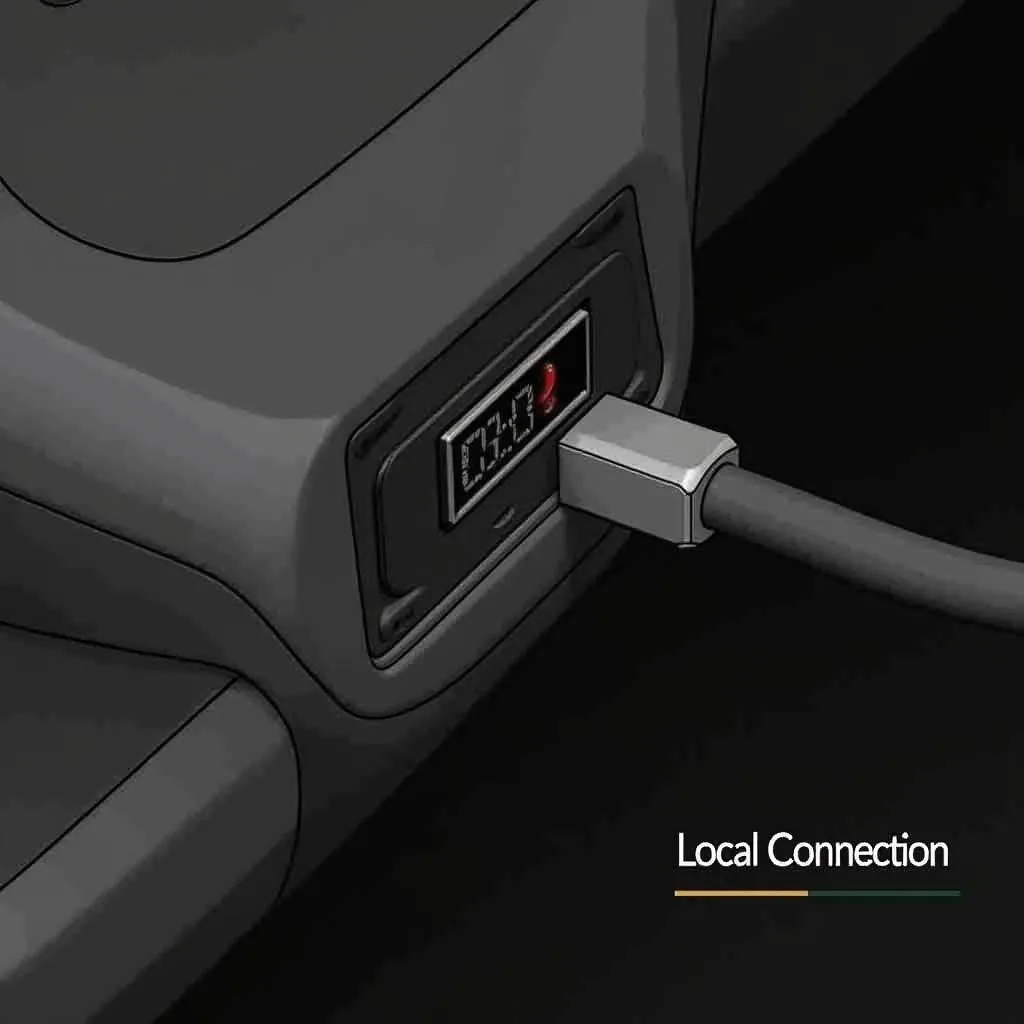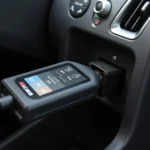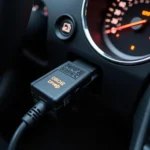The world of automotive diagnostics is increasingly intertwined with technology, leaving many car owners wondering about the possibilities and limitations of their vehicles’ systems. One such question that pops up is, “Can my OBD2 protocol be VPN?”. This article dives into the core of OBD2 protocols and VPNs, clarifying whether these two technologies can intersect.
Understanding OBD2 and its Protocols
OBD2, short for On-Board Diagnostics, is a standardized system that allows external electronics to interface with a vehicle’s computer and access its diagnostic information. This system relies on specific communication protocols, which are essentially sets of rules that dictate how data is exchanged between the OBD2 port and the diagnostic tool. Some common OBD2 protocols include ISO 9141-2, KWP2000, and CAN bus.
Think of these protocols as languages. Your car’s computer “speaks” one or more of these languages, and your OBD2 scanner needs to be fluent in the same language to understand the data being transmitted.
VPNs: A Different Kind of Network
A VPN, or Virtual Private Network, operates on an entirely different principle. It’s designed to create a secure and encrypted connection over a public network, like the internet. When you use a VPN, your internet traffic is routed through an encrypted tunnel to a server operated by the VPN provider, masking your IP address and protecting your online activity.
The Disconnect Between OBD2 and VPNs
The fundamental difference in their functionalities makes it impossible to directly connect an OBD2 protocol to a VPN. Here’s why:
- Local Network vs. Internet Communication: OBD2 protocols are designed for communication within the vehicle’s internal network, while VPNs operate over the internet.
- Purpose of Communication: OBD2 protocols focus on retrieving diagnostic data from a vehicle’s computer, while VPNs prioritize secure data transmission over external networks.
Addressing the Underlying Need
The question of using a VPN with an OBD2 protocol likely stems from a desire for data security or remote access to vehicle diagnostics. While a direct connection isn’t possible, there are alternative solutions:
- Secure OBD2 Scanners: Some advanced OBD2 scanners offer built-in security features like data encryption to protect sensitive vehicle information.
- Cloud-Based Diagnostics: Certain telematics devices plug into the OBD2 port and transmit data wirelessly to a cloud platform. This allows for remote access to vehicle diagnostics and potentially leverages the cloud platform’s security measures.
Expert Insights
“While a direct VPN connection to your OBD2 port isn’t feasible, the automotive industry is evolving,” says automotive cybersecurity specialist Dr. Emily Carter. “We’re seeing more sophisticated security features integrated into OBD2 scanners and a rise in cloud-based diagnostics that offer both remote access and enhanced security.”
Conclusion
While you cannot directly connect an OBD2 protocol to a VPN, understanding the distinction between these technologies clarifies their roles. As technology advances, we can expect to see more secure and innovative solutions for accessing and protecting vehicle data.
FAQs
1. Is it safe to use a public WiFi network with my OBD2 scanner?
It’s best to avoid using public WiFi networks for any sensitive tasks, including vehicle diagnostics. These networks can be vulnerable to attacks.
2. Can I remotely access my car’s diagnostic data?
Yes, using a telematics device that connects to your OBD2 port and transmits data to a cloud platform enables remote access to your car’s diagnostics.
3. Are there OBD2 scanners that protect my car’s data?
Yes, some advanced OBD2 scanners offer data encryption and other security features to safeguard your vehicle’s information.
4. What are the benefits of cloud-based vehicle diagnostics?
Cloud-based diagnostics offer remote access to your vehicle data, potential security benefits from the cloud platform, and often additional features like vehicle tracking and maintenance reminders.
Need Further Assistance?
Contact us via WhatsApp: +1(641)206-8880 or Email: [email protected]. Our 24/7 customer support team is here to help with all your OBD2 and vehicle diagnostic needs.


